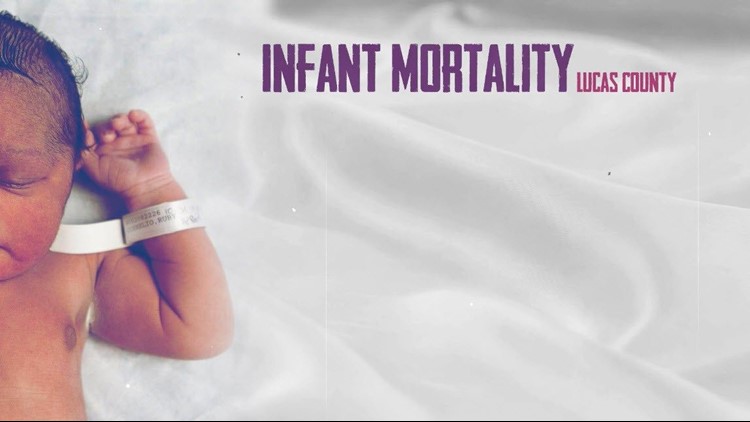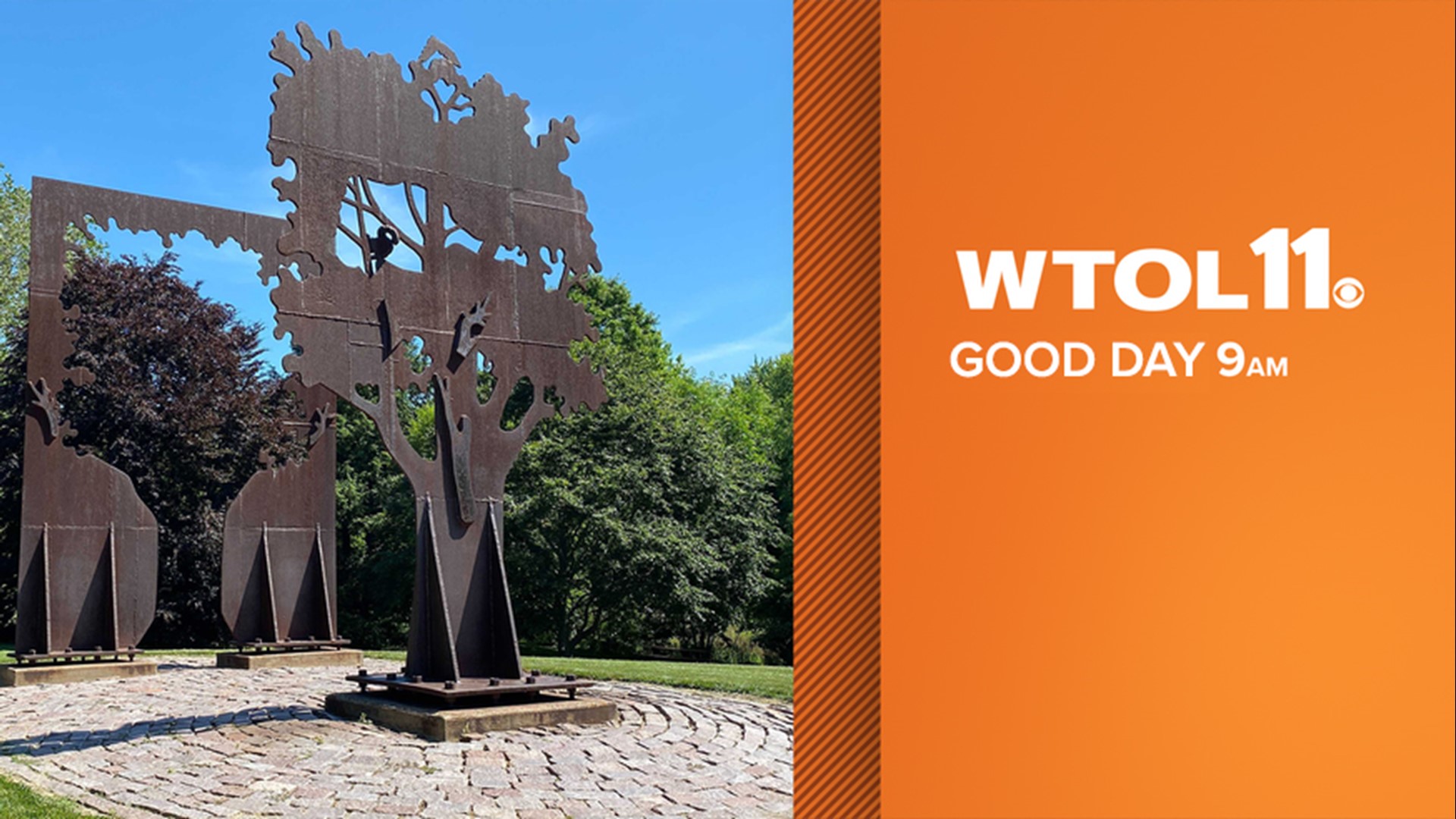TOLEDO, OH (WTOL) - One infant death is one too many. In 2016, we lost 41 babies in Lucas County.
Leaders at the Toledo Lucas County Health Department say many of those deaths could have been prevented.
In a special report, WTOL 11's Amanda Fay is finding out what's killing our babies.
Angeli Austin of Toledo recalls the day her first baby was born.
"I was sitting in the hospital and I was just looking at her and I'm like, 'I'm a mom,'" Austin described.
That was 16 years ago. Austin gave birth to a baby girl she named Destinee.
Four months later, while out of town, tragedy struck.
"When we got to the hospital, it was all of the family members and I was like, 'something happened,'" Austin recalled.
Destinee passed away from SIDS while in the care of a family member.
"It was hard," Austin said. "Very, very hard. Especially with it being my first child. Kind of made me feel like I didn't want any more children. I was really scared."
Austin says she sheltered herself for a while, and it wasn't without support that she made it through.
"My family. My church family. My friends," she added. "And God gave me this unbelievable strength."
Austin says she felt a void and has since had two boys who've made her life complete.
"I cherish every little moment," she said.
She's also giving back by speaking to other local moms, who have recently lost children, at community meetings.
"It really helps to talk about it and not bottle it in," Austin said about coping with loss. "When you bottle it in, it's not good at all."
Those community meetings are part of an effort to keep our babies alive.
"There is a lot of work for us to do as a Coalition," Community and Minority Health Supervisor of Toledo Lucas County Health, Celeste Smith said in reference to the Getting to One Coalition.
The Coalition is tasked with moving the needle.
According to the Ohio Department of Health, the current infant mortality rate in Lucas County is 7.3. That means for every 1,000 births, about seven babies die before they turn one.
"When you look at the disproportional of it, it's even worse than that," Smith said.
The Ohio Department of Health says in 2016, of the infant deaths, 19 were white and 22 were black. Factoring in the population breakdown, the white infant mortality rate is 5.0 and the black infant mortality rate is 14.2.
"So that means our black babies are dying almost three times the rate of white babies and that's not acceptable," Smith said.
So what's happening?
Smith says the number one cause of infant deaths is premature birth, followed by a lack of safe sleep practices. Another big issue facing moms is racism that affects a woman's health.
"There's data out there when you're comparing two women, one African American and one white," Smith explained. "The white woman doesn't even have a high school education and the black woman has graduated from high school, with a degree, lives in a great neighborhood, with insurance. That this white woman, who hasn't even graduated from high school, has a greater chance of her baby making it to one than this African American woman."
It seems hard to fathom in 2018, but Smith says racism is still happening and it's hard on a woman, trying to nurture a developing fetus.
"Making sure that every woman, every time, is getting good, quality health care along with the other stressors that come with being a minority woman, living in our society today, just puts them at a greater risk," Smith said.
So, what's the solution?
Smith says it takes a village, and a lot of legwork. There are resources out there. Women and families just need to get connected.
That's where Jada Barnett comes in. She's a Community Health Worker.
"I'm at the malls. I'm at the restaurants," Barnett explained. "I'm out walking down the street and I see pregnant women, I'm like, excuse me, sorry, not to bother you, but are you connected? I see that you're pregnant.' That's just what I do."
As a Community Health Worker, Barnett makes home visits to meet with moms and families. A mother of four and grandmother of two, she gets it, because she's been through it.
"I had her at 22 weeks. She was 0 pounds, 15 ounces, 10 inches long," Barnett said about her daughter Jaslyn, who was born in 2008.
Jaslyn, who spent four months in the NICU, is now nine and doing well.
"It was hard," Barnett recalled. "I lived at the hospital. Not to mention being hard because I had three other children at home."
Barnett knows what's it like to need support and that's what she provides to her clients.
"If they need to get connected to an OB, if they need a dentist, if their children need a pediatrician," Barnett described. "Whatever it is."
Barnett is also building trust with her clients. It's something Smith says is crucial in really being able to move that needle and that means diversifying our leadership and community positions.
"Having individuals in a lot of these programs, these social service agencies, our first responders, Toledo Police, fire rescue, that the staff who are showing up to these homes, look like some of the individuals that they're serving," Smith explained. "That's huge."
There are a number of resources available to women and families, including Mommy and Me Ride for Free, Help Me Grow, Healthy Start, Early Head Start and Moms and Babies First.
Smith says the best place to start is to either call the Health Department at (419) 213-4100, The Pathways HUB at 419-842-0800 or let your doctor know you need help and he or she will connect you to services.



